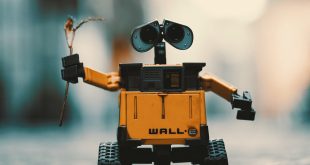From music suggestions to help with medical diagnoses, population surveillance, university selection and professional recruitment, algorithms are everywhere, and transform our everyday lives. Sometimes, they lead us astray. At fault are the statistical, economic and cognitive biases inherent to the very nature of the current algorithms, which are supplied with massive data that may be incomplete or incorrect. However, there …
Read More »Search Results for: machine learning
Technology that decrypts the way our brain works
Different techniques are used to study of the functioning of our brain, including electroencephalography, magnetoencephalography, functional MRI and spectroscopy. The signals are processed and interpreted to analyze the cognitive processes in question. EEG and MRI are the two most commonly used techniques in cognitive science. Their performances offer hope and but also concern. What is the current state of affairs …
Read More »From personal data to artificial intelligence: who benefits from our clicking?
Clicking, liking, sharing: all of our digital activities produce data. This information, which is collected and monetized by big digital information platforms, is on its way to becoming the virtual black gold of the 21st century. Have we all become digital workers? Digital labor specialist and Télécom ParisTech researcher Antonio Casilli has recently published a work entitled En attendant les …
Read More »From human feelings to digital emotions
Making powerful machines is no longer enough. They must also connect with humans socially and emotionally. This imperative to increase the efficiency of human-computer interactions has created a new field of research: social computing. This field is aimed at understanding, modeling and reproducing human emotions. But how can an emotion be extracted and then reproduced, based only on a vocal …
Read More »When AI helps predict a patient’s care pathway
Researchers at Mines Saint Etienne are using process mining tools to attempt to describe typical care pathways for patients with a given disease. These models can be used to help doctors predict the next steps for treatment or how a disease will progress. Will doctors soon be able to anticipate patient complications arising from a disease? Will they be …
Read More »Yelda and OSO-AI: new start-ups receive honor loans
On December 6, the Committee for the Digital Fund of the Graduate Schools and Universities Initiative chose two start-ups to receive honor loans: Yelda and OSO-AI. Together, Yelda, a start-up from the incubator IMT Starter, and OSO-AI, from the incubator at IMT Atlantique will receive three honor loans, for a total of €80,000. These interest-free loans aimed at boosting the …
Read More »AI in healthcare for the benefit of individuals and society?
Article written by Christian Roux (Director of Research and Innovation at IMT), Patrick Duvaut (Director of Innovation at IMT), and Eric Vibert (professor at Université Paris-Sud/Université Paris Saclay, and surgeon at Hôpital Paul Brousse (AP-HP) in Villejuif). How can artificial intelligence be built in such a way that it is humanistic, explainable and ethical? This question is central to discussions …
Read More »Superpixels for enhanced detection of breast cancer
Deep learning methods are increasingly used to aid medical diagnosis. At IMT Atlantique, Pierre-Henri Conze is taking part in this drive to use artificial intelligence algorithms for healthcare by focusing on breast cancer. His work combines superpixels defined on mammograms and deep neural networks to obtain better detection rates for tumor areas, thereby limiting false positives. In France, one …
Read More »What is artificial intelligence?
Artificial intelligence (AI) is a hot topic. In late March, the French government organized a series of events dedicated to this theme, the most notable of which was the publication of the report “For a Meaningful Artificial Intelligence,” written by Cédric Villani, a mathematician and member of the French parliament. The buzz around AI coincides with companies’ and scientists’ renewed …
Read More »Seamless vacations thanks to a research lab
For four years now, researchers from EURECOM and the startup Data-Moove have worked together to radically improve the tourist experience in various regions. With help from technological innovations from laboratories, they have succeeded in aggregating the information available on the web and social networks to create a local and comprehensive picture of what a geographical area has to offer. …
Read More » I'MTech L'actualité scientifique et technologique de l'IMT
I'MTech L'actualité scientifique et technologique de l'IMT









